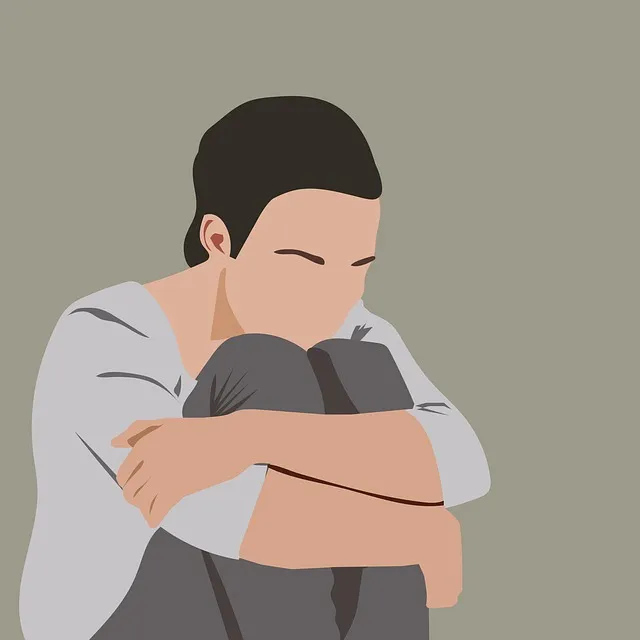The media's portrayal of mental illness significantly shapes public understanding, impacting those seeking behavioral health services like those offered by Kaiser Permanente in Littleton. Accurate and nuanced depictions reduce stigma and encourage help-seeking behaviors, while stereotypes deter individuals from professional assistance. Therefore, it's crucial for media creators and mental health professionals to collaborate, challenging stereotypes through authentic storytelling and diverse perspectives, fostering empathy and self-care within the industry. Organizations like Kaiser Permanente behavioral health services Littleton are leading this charge, transforming media representation of mental illness, and ultimately promoting community support and resilience.
In today’s media landscape, the portrayal of mental illness can significantly shape public perception. This article explores how negative representations contribute to stigma and offer solutions inspired by Kaiser Permanente Behavioral Health Services Littleton’s successful model. We discuss strategies to enhance accurate and compassionate mental illness representation in media, highlighting the impact on improving mental health support and fostering a more inclusive society. Discover innovative approaches that challenge stereotypes and promote understanding.
- Understanding the Impact of Media Portrayal on Mental Health Perception
- Kaiser Permanente Behavioral Health Services Littleton: A Model for Positive Change
- Strategies to Enhance Accurate and Compassionate Mental Illness Representation in Media
Understanding the Impact of Media Portrayal on Mental Health Perception

The media’s portrayal of mental illness can significantly shape public perception and understanding of various psychological conditions. When depicted accurately, media content can raise awareness, reduce stigma, and foster empathy. Conversely, stereotypical or inaccurate representations may lead to further marginalization and misunderstanding. This is particularly concerning as many individuals struggling with their mental health often turn to media for information and entertainment, especially when seeking support from services like Kaiser Permanente behavioral health services Littleton.
Inaccurate media portrayals can contribute to the stigmatization of specific disorders, impacting how individuals perceive themselves and seek help. For instance, over-simplifying complex conditions or focusing solely on drastic measures can deter people from seeking professional assistance. Therefore, it is crucial for media creators and professionals in mental health, such as those involved in planning risk management for these specialists, to collaborate on creating nuanced and realistic representations. This approach can boost confidence among individuals facing mental health challenges and encourage them to participate in initiatives like Stress Management Workshops Organization, thereby promoting better overall well-being.
Kaiser Permanente Behavioral Health Services Littleton: A Model for Positive Change

Kaiser Permanente Behavioral Health Services Littleton stands as a beacon of hope and positive change in the realm of mental health representation within media. This initiative has been instrumental in challenging societal perceptions and promoting accurate, empathetic portrayals of individuals grappling with various behavioral health issues. By integrating innovative strategies, they foster an environment that encourages open dialogue and builds resilience among both patients and viewers.
Their approach emphasizes empathy-building strategies, ensuring that stories shared are nuanced and reflective of real-life experiences. This focus on authenticity helps reduce the stigma surrounding mental illness while promoting understanding and support. Furthermore, the program incorporates burnout prevention measures, recognizing the importance of self-care and professional well-being in the media industry. These proactive steps not only contribute to a healthier creative landscape but also offer valuable insights into how resilience can be cultivated within communities facing behavioral health challenges.
Strategies to Enhance Accurate and Compassionate Mental Illness Representation in Media

To enhance accurate and compassionate mental illness representation in media, several strategies can be employed. Firstly, Kaiser Permanente behavioral health services Littleton and other organizations can collaborate with mental health professionals to ensure storylines are factual and avoid stereotypes. This involves consulting with experts to advise on symptoms, treatments, and the lived experiences of individuals with mental illness. By involving voices from diverse backgrounds, including those who have personally faced these challenges, media creators can foster greater understanding and Mental Illness Stigma Reduction Efforts.
Additionally, focusing on the humanizing aspects of mental health journeys can help combat stigma and promote Self-Esteem Improvement. Portraying characters grappling with mental illness as complex individuals with unique strengths and vulnerabilities, rather than solely defining them by their condition, is crucial. Incorporating cultural sensitivity in mental healthcare practice by reflecting a wide array of ethnic, racial, and socioeconomic identities ensures representation that resonates with diverse audiences. These approaches not only enrich storytelling but also contribute to a more inclusive media landscape where mental illness is treated with the empathy it deserves.
Mental illness representation in media plays a pivotal role in shaping public perception and understanding. By learning from successful initiatives like Kaiser Permanente Behavioral Health Services Littleton, we can develop strategies that promote accurate and compassionate portrayals. Implementing these practices across various media platforms will foster a more inclusive and supportive society, reducing stigma and improving mental health care accessibility for all.






